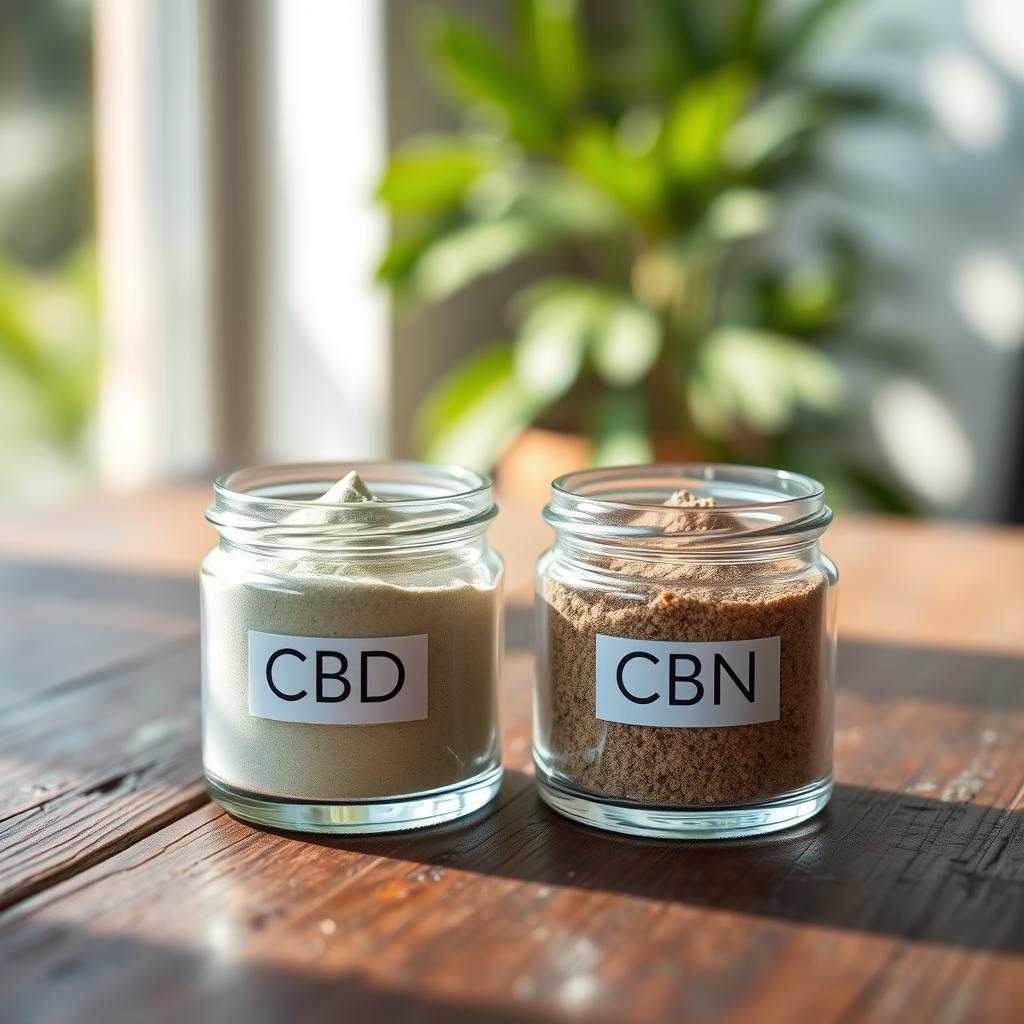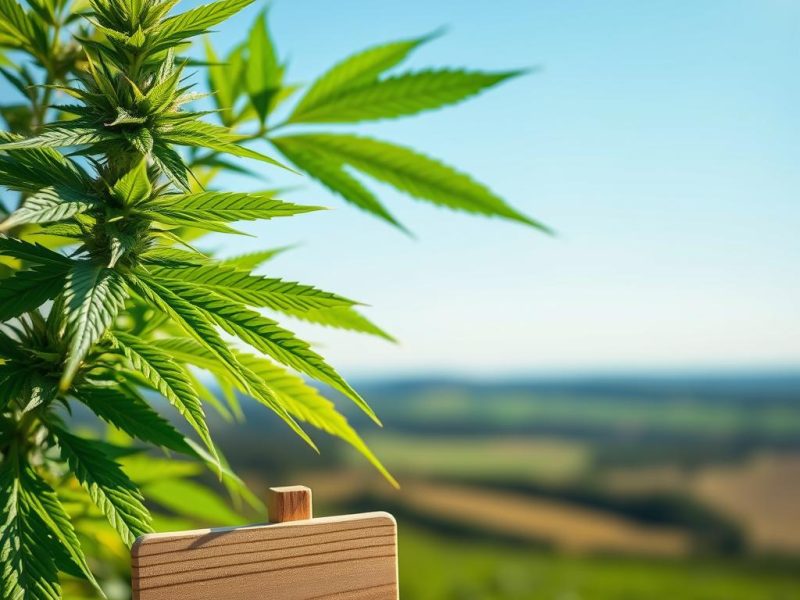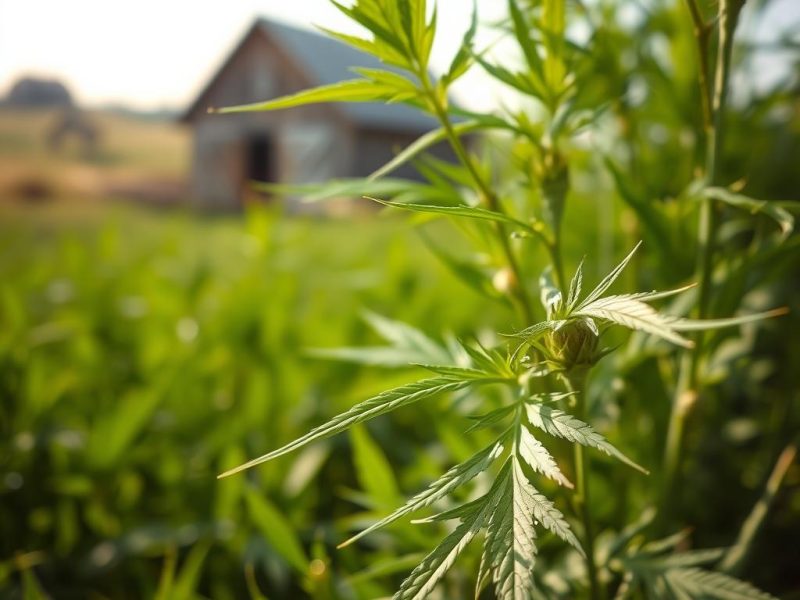Pardon the classification, but the field of marijuana is characterized by a lot of acronyms, including THC, CBD, CBG, and present day CBN. Many have heard of CBD (cannabidiol) and THC which are the more common compounds present in the cannabis plant and how they function albeit to most of person’s knowledge; however, another compound known as CBN (cannabinol) is drawing the attention of many, especially as it has been identified as having some effects that are relaxing in nature. Although they have similar pronunciations and come from the identical plant, debating on CBN vs CBD outlines the differences between the purposes of the two compounds. It is against this background of the CBN and CBD that the choice of the best product in regard to health purposes is imperative for such health benefits to be realized. In all honesty, deciding between CBD oil and CBN oil would seem absolutely incomprehensible, any human perhaps what has experienced this. Whereas one provides relief and equilibrium all day long, the other has earned the nickname ‘sleepy cannabinoid’. The following guide will explain everything about the CBN vs CBD comparison all the way from their evolution and uses to the mechanisms of action in the body in order to help you decide which would be suitable for you without bias.
What is Cannabidiol (CBD)?
The moment, CBD, or cannabidiol, becomes one of the most well-known of the cannabinoids. In order to achieve this, CBD is the second most plentiful chemical found in cannabis family plants, and is the most active chemical found in hemp. In the last few years CBD has gained enormous recognition as universal components of oils, tinctures, lotions, or even food. The principal reason for its popularity I can point out is quite simple: it is not psychoactive. Namely it does not give the “high” that its very famous cousin THC is known for.
CBD is extracted directly from the hemp plant which is a breed of cannabis that has very high levels of CBD and very low levels of THC (legally under 0.3% content). There’s a variety of reasons used for CBD consumption, but its rebellious use is seen in most of the following ways: leveling down, relieving stress, or reducing pain. It is also considered as an all-purpose health supplement that helps in restoring the balance in the body.
Oddly enough, CBD exists which is said not to bind to the core receptors of the body’s cannabinoids (CB1 and CB2) which is believed to have this effect. More in particular, it remains active in the endocannabinoid system (ECS), a sophisticated web of cells that, among other things, is involved in the regulation of emotions, sleeping patterns, ingestion of food, and pain. It assists in that it doesn’t allow the enzyme to break down our endocannabinoids, thus ensuring overall efficiency of the endocannabinoid system.
How About CBN (Cannabinol)?
According to the literature, CBN, the other compound, is better known as cannabinol and its emergence is worth separate attention. As a consequence, there is only a small natural content of CBN in the cannabis plant which makes it very different from CBD. In other words, it is naturally produced through hydrolysis processes of decarboxylated active THCs within time and exposure to heat and air. Essentially, one could argue that it is just like a matured THC. For instance, aged cannabis that has been left to stand for long periods will contain more CBN than any strain in its fresh state.
For many years, CBN went largely unnoticed by researchers, but this is no longer the case. It is increasingly being explored by researchers and consumers alike for its unique characteristics; one of these is its tendency to have sedative effects. Such effects have earned it the moniker ‘sleepy cannabinoid’. The science here is in its infancy, yet some studies and anecdotal evidence imply that there is therapeutic potential in CBN as an assistance device promoting sleep.
Since CBN is a derivative of THC, one of the common questions that arise is whether or not it has any psychoactive properties. This question has to be dissected to be properly answered. CBN binds to the CB1 receptor in the brain just like THC, though in the case of CBN, the receptor affinity is much weaker. It is understood to be at about 10% of the strength of THC. For that reason, it is usually thought of as non-inebriating, and few users complain of a “high”, but treasure profound relaxation and sleepiness instead. Moreover, the distinction between CBN vs CBD comes in here because CBD is not psychoactive in any way.
CBN Vs CBD – Cannabis That Binds
When comparing, it is beneficial to have a chart for CBN vs CBD competition. Though these elements have one common founder of both the drug classes of cannabinoids, their effects are entirely different.
| Arguments | Current Cannabinoid | Usual Connection | Overall Health and Well-Being | Feeling of Peace | Endogenous Prior To The Onset of Cannabis | One Relying Upon Anxiety | Help The Drug Is Used To Suppress The Excessive Inflammatory Process | Sleeping and calming down processes |
|---|---|---|---|---|---|---|---|---|
| Cannabidiol | Predominant in the hemp plant; direct sap of the plant | Develops due to the oxidation of THC; resting in only negligible levels | Zero. Not intoxicating at all. | Very less and is referred to as not intoxication but tranquilization up to some extent. | How can enhanced neurotransmission and treatment of central inflammatory effects be explained? That is due to an indirect action within the endocannabinoid system, which he stimulates. | Weakens the CB1 receptor | Easily present in various forms of businesses’ products | This is seen more often now, especially in relation to sleep specific products |
| Amount of Research | Sufficient and increasing with time | A New and an Adolescent Concept | Functional Differences Discussed: Rationale and Promising Uses |
A table is fine, but the true story of CBN vs CBD takes place within the niches they avail pain relief for. Let’s turn to the primarily available explanations to why consumers choose these phytocannabinoids.
When CBN Stands against CBD: Sleep
Where there is any point of controversy that is probably the most profound. It is quite obvious which product one will take when they are having sleeplessness; CBN vs CBD. CBN is well advertised as a natural sleep aid. Initial research as back as 1970’s indicated that CBN has sedative qualities, and though drug science in the modern world is yet to reach there, user experiences come into play. A lot of users report feeling sleepy and thus enjoying deep sleep – with the use of CBN which does not have side effects that cause someone to feel sleepy.
Cannabidiol or CBD also alleviates sleeping challenges, however, it takes a different approach. This does not redirect sedation per se such as CBN does. This helps in managing causes of insomnia like anxiety, and size worries, or even physical ailments. In doing so, it performs the function of calming the mind and the body allowing a favorably niche for sleep to naturally come about. Therefore, CBN and CBD are different when it comes to improving sleep in that the former is a sedative and the latter a relaxant.
CBN vs CBD and Pain, Inflammation
Considering treating pain and infections, CBD is far more thoroughly researched. Extensive selection of publications proves that CBD has very strong anti-inflammatory potential, is able to alleviate pain at different etiology including that which appears after exercise. It modulates the activity of pain channel receptors thereby easing discomfort.
Likewise, CBN has caught attention because it has been thought to have analgesic (pain-relieving) abilities. A few studies imply that it may impact the pain sensing neurons which sounds promising because it may encompass some effects against inflammation. Nonetheless, these investigations are quite scant as opposed to those on CBD. At this moment, in the CBN vs CBD debate regarding pain relief, the latter still prevails as the more tested and explored alternative.
CBN vs CBD in Treating Anxiety
CBD is the best option for people who are struggling with anxiety and stress relief. The primary reason for the choice of CBD is its therapeutic effect that relieves anxiety and does so by interacting with serotonin receptors that are present in the brain, which are responsible for mood, in general. A lot of people consume CBD during daytime in order to feel relaxed and at the same time able to concentrate, without any kind of tiredness involved.
CBN, on the other hand, is not used – or even lauded – as an anxiolytic drug. Its exception lies in it being a sedative potent. The issue with drowsiness is that even though one is no more anxious while so, it is not viable devoting oneself to the mere sedation during active hours. The very strong relaxing nature of CBD allows the stress factor evaluation of CBN vs CBD and the choice is better off for CBD than for CBN.
Legality and Availability
The 2018 proper legislation by the United States Congress made hemp and related compounds with less than 0.3% THC legal at the federal level. This categorically implies that Cannabidiol obtained from hemp (hemp CBD) and cannabinol (CBN) are entirely in compliance with federal law. However, one may desire to remember, such is not the case in all states, each of which has its own limitations, and, therefore, it is prudent to properly check the legislation in the area of residence.
Availability is not a concern when it comes to CBD. It is sold almost everywhere in swings from brick and mortar shops and spas with health care products to online stores across a wide range. Although CBN is reluctantly available in the market, the chemicals are used in products at a faster rate. It is available mainly in double actions sleep inducing products inclusive of tinctures, gummies and other delivery forms where it is CBN vs CBD to promote the spectrum of health benefits.
Can Help You Consume CBN and CBD: The Synergistic Theory
They go hand in hand; so why not, take them both. According to the so-called “entourage effect” most commonly used with cannabinoids, suggests the different molecules of the hemp plant enhance one another so as to produce an amplified effect. None of this can miss back addressing the CBN vs CBD topic.
Most of the highest quality sleeping products offered today contain CBN together with a dose of CBD. With this formulation, CBD produces the basic smoothening effect and relief from nervously tense muscles, whereas CBN corresponds with a sedation mask that carries a special effect. These two compounds cover broader aspects making sleep more favorable.
Frequently Asked Questions (FAQ)
Is CBN stronger than CBD? It depends on the desired goals. They exhibit different areas of strengths. When it comes to inducing sleep or enhancing sedation, then CBN is considered to be enhanced and appropriate. For instance, CBD is better for anxiety control, inflammatory responses, or moderate well-being during the daytime. It does not depend on the effectiveness of CBN vs CBD; it depends on where these substances will be applied.
Will CBN make me fail a drug test? It might, that is also an issue that should be taken into consideration. Because CBN is a byproduct of the breakdown of THC, some less sophisticated drug tests may inadvertently cause confusion where THC is detected instead. In case you anticipate drug tests in the near future, then it is preferable to use CBN products or in case there is a necessity, then use a product from such a trusted company that will provide a guarantee that it does not contain THC.
Is CBN psychoactive? CBN is a product that is commonly said to be non-intoxicating, meaning most people do not experience the “high” effect of THC. But as its structure permits binding to the CB1 receptor, it becomes psychoactive, albeit to a very minute extent. The sensation that CBN produces can be described as heavy and sleepy in contrast to the mental disorientation from THC.
Which is better: CBN vs CBD? Each has its own place and purpose in the world. It is as simple as that. So, which one do you need? That depends entirely on the purpose you seek to accomplish. For instance, carry everyday anxiety, for pain or for maintenance – best is CBD. Otherwise, if your cause for sleep is CBN, it is your cannabinoid of choice.
Conclusion
The CBN vs CBD debate reinforces the fact that cannabis is such a diverse plant species. Even though both non-psychoactive cannabinoids promote wellness, the improvement is different and yet one complements the other. CBD provides stable enhancement during the day for stress and pain relief. This is the best approach to thinking about it – as an adaptive treatment that helps maintain the well-being of the organism.
Conversely, CBN constitutes the expert. It is the cannabinoid of choice when it’s sleep time. Due to its sedative qualities, it is a good surrogate for insomniacs, who are looking for something to help them sleep better. However, it is not necessary to make a specific decision regarding the CBN vs CBD controversy. Most people agree that the best way to use the two is to use CBD during the day and a combination of CBN and CBD during the night. This allows them to incorporate the two into their wellness practice.



